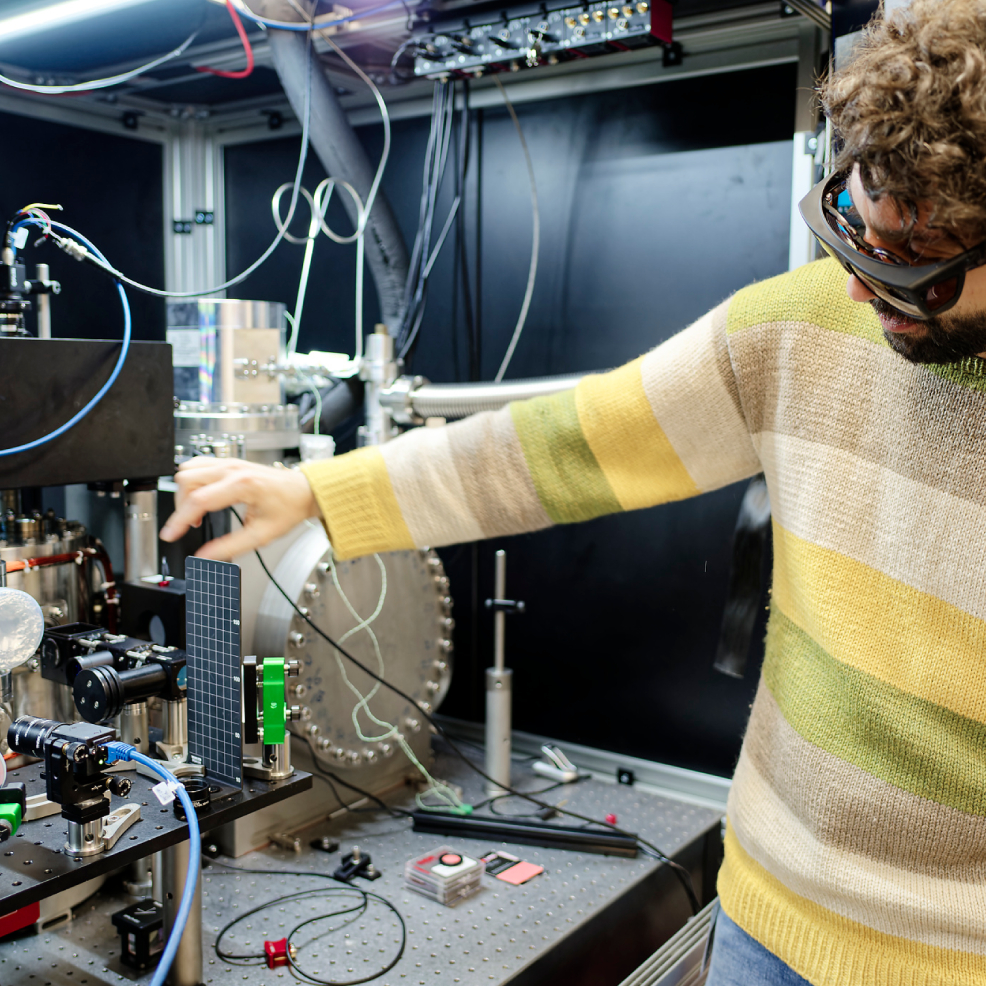Entanglement is a phenomenon in quantum mechanics where the properties of two or more particles become correlated in such a way that the state of one particle cannot be described independently of the state of the others, even when they are separated by vast distances.
This means that measuring the state of one particle instantaneously influences the state of the other(s), regardless of the distance between them. This concept challenges classical intuitions about locality and separability. It’s a central feature of the quantum world that distinguishes it from classical physics, and understanding entanglement helps deepen our comprehension of quantum mechanics.
Quantum computers exploit entanglement to perform certain calculations exponentially faster than classical computers by enabling the phenomenon of quantum teleportation, where the complete state of one particle can be transferred to another distant particle instantaneously, without physically moving the particle itself.
A cornerstone of quantum theory, with profound implications for both fundamental physics and practical applications in quantum technologies. Its study continues to be a vibrant area of research in quantum physics.
